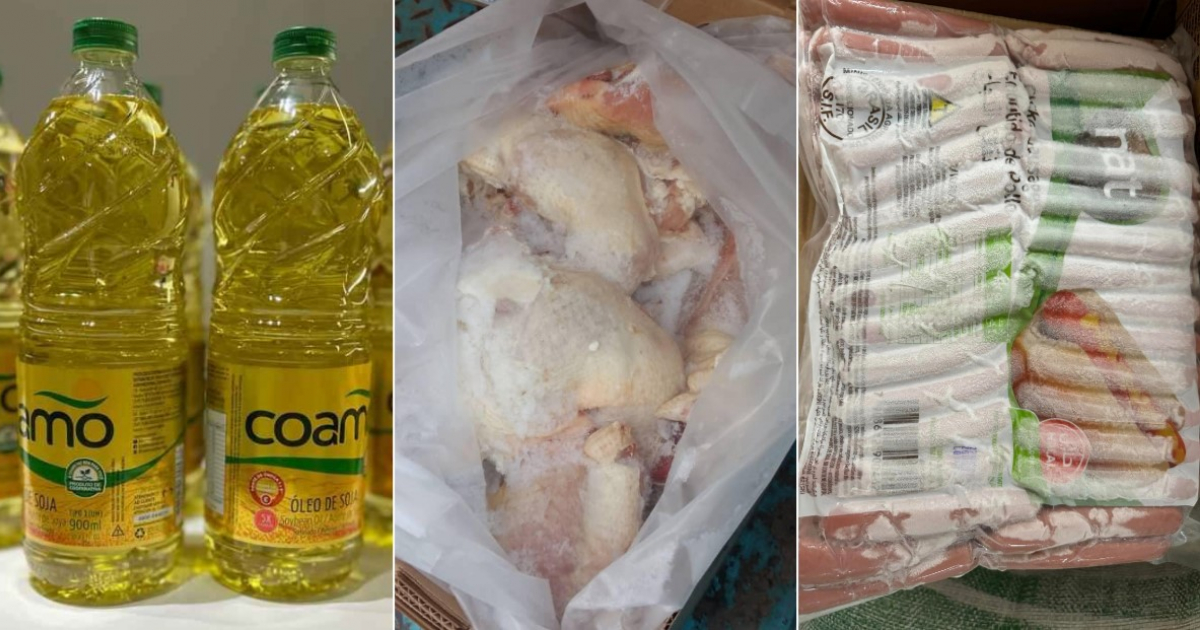
The Cuban government announced on Monday the implementation of price caps on six essential goods in high demand through a resolution published in the Official Gazette of Cuba.
Resolution 225/2024 from the Ministry of Finance and Prices establishes that the products currently subject to maximum retail prices are as follows:
Chopped chicken: 680 pesos per kilogram.
Edible oils (except for olive oil): 990 pesos per liter.
Powdered milk: 1,675 pesos per kilogram
Pasta products: 835 pesos per kilogram.
Sausages: 1,045 pesos per kilogram
Powdered detergent: 630 pesos per kilogram
The resolution is presented as an effort to mitigate the impact of inflation on consumers.
To achieve this, the customs duty on the importation of these products has been eliminated, and maximum selling prices have been established. These prices take into account acquisition costs, marketing expenses, merchants' profits, and sales tax.
Additionally, a profit margin of up to 30% on costs and expenses is established, provided that the prices defined in the annex of the resolution are not exceeded.
The approved regulation clarifies that the establishment of these maximum prices does not imply or justify an increase in current prices if they are already lower.
The Minister of Finance and Prices, Vladimir Regueiro Ale, emphasized that this action responds to the current economic conditions in the country and is part of the government's efforts to protect the purchasing power of the population.
In a press conference, Regueiro stated that the regulation will be "mandatory for all economic players. There is no discriminatory treatment for any part of the economy; rather, everyone must contribute to maintaining a reasonable price level for these essential products for the population," reported the official Granma.
However, the resolution will primarily affect micro, small, and medium-sized enterprises (mipyme), which are currently the main distributors of these six products. In contrast, the foreign currency stores, known as MLC stores, will not be as significantly impacted, given that most of these food items are unavailable in those stores.
The regulation approved this Monday also specifies that the Ministry of Finance and Prices, in coordination with the ministries of Foreign Trade and Foreign Investment, and Domestic Trade, will periodically monitor the import prices of these goods to make necessary updates to the maximum retail prices and consider including other products in the list.
Recently, the Deputy Minister of Finance and Prices of Cuba, Lourdes Rodríguez Ruiz, held a tense meeting with entrepreneurs and executives from small and medium-sized enterprises (Mipymes) to inform them about the government's decision to impose price caps on essential goods sold in the retail market.
A recording accessed by the independent media outlet elTOQUE revealed the tense atmosphere in which the meeting took place, featuring critical comments from the “new actors of the economy” and expressions of dissatisfaction with the government's policies aimed at controlling inflation.
The government's intention to impose price caps was supposed to take effect on July first; however, the day before, the Cuban government reversed its decision to cap retail prices on a group of products sold by the private sector.
Previously, the regime announced that it had prepared an army of 7,000 inspectors, who will be responsible for overseeing and ensuring compliance with the price cap regulations.
Filed under: